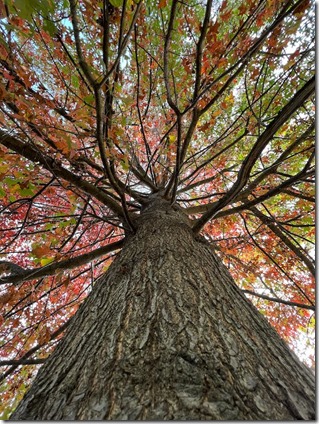 “Have you ever seen an oak tree grow?”
“Have you ever seen an oak tree grow?”
This was a question asked of us on our Sexual Abuse Response Team. We were discussing how our goal is to cultivate a sustainable movement in regards to healthy and Christ-honoring responses to our sexual abuse crisis. This involves training, survivor care, institutional change, and much more.
The idea behind the question is that you really don’t see oak trees grow—you don’t even notice it, but through a long season they significantly shape the landscape. We think here of those like William Wilberforce who labored for decades to get the slave-trade abolished in England. What is needed here isn’t a heated and flash in the pan response but one that is sustainable for the long term.
I agree….but….
I also believe there is something else necessary for oak trees to grow—brave little rodents. I made solid B’s in my college science classes—so, I could be wrong on this, but from what I’ve heard an acorn would never blossom into a mighty oak tree unless a courageous little squirrel or field mouse picks it up and packs it off to a different location.
The squirrel is necessary because if the acorn is not moved it will never come out of the shadow of the tree from which it fell, it would never have the room to grow. Likewise, a sustainable movement needs not only a long-obedience in the same direction (to borrow Eugene Peterson’s term) but we also need brave little rodents who move acorns.
Where would we be today in matters of racial reconciliation without the acorn moving work of a Rosa Parks who wouldn’t move to the back of the bus? Where would we be without the bravery of Dr. King’s dream? Where would we be without the brave men and women who marched in Selma?
But it was not only these big moments that created a movement that is still enduring today. It was also the little acts of bravery by all the unknown people who carried the acorns of tough conversations, hard fought minor battles, pressed with difficult questions, etc. Yes, it is both time and bravery.
If we don’t move acorns then we will continue with business as usual.
The MBC Annual Meeting
Last week I was at the Missouri Baptist Convention Annual Meeting. Last year I was on the floor making an appeal for a task force. This year I was on the stage working with the Sexual Abuse Response Team that was developed by our executive board. I am both encouraged and discouraged, let me explain.
I am encouraged because I am thankful that we have a Sexual Abuse Response Team. And it’s a good team. Our chair is a good man who is truly working to help survivors and prevent sexual abuse in our churches. We also have survivors on our team who provide tremendous insight. It’s a good team.
I am also encouraged because I believe we’ve seen the needle move some within our convention. I am happy that many heard Greg Love, from Ministry Safe, give a presentation about the need to be familiar with the grooming process. It’s great material and I think might have opened the eyes of some in attendance.
But I’m also somewhat discouraged. I’m not sure that we “get it” yet across our state. While I’m appreciative of the work that we did do, I also believe that everyone on our team is discouraged by some of the work we didn’t get to do. We would all love to move more quickly and more profoundly. We believe God is calling us to be “acorn” movers. I don’t think we moved many acorns this year.
We’ve also only been a team since May. So, I do want to be patient. This next year, if given the opportunity to continue to serve, I’m hoping we will see more things put in place. And I’m hoping we hear more from survivors.
Speaking of, hearing from survivors…
That was one of the things that really bothered me with Greg Love’s talk. He said something to the effect of, “I could talk to you about survivors, and share their stories, but that wouldn’t move you to change.” It’s not that he is wrong, necessarily. It’s that he’s painfully right.
He knows from experience that the pain of a survivor doesn’t necessarily cause a church to change. Protecting the vulnerable doesn’t motivate us nearly as much as protecting our own assets. And until that changes we have much work to be done.
I would love to see us partner with an organization like GRACE to do a cultural assessment. I think it’s important for us to ask these hard questions. It’s important for us to truly know where we stand on these things.
- Are we safe?
- Are we trustworthy and transparent?
- Do survivors have peer support?
- Do our churches work with survivors or against them?
- Are survivors empowered? Are they given a voice and a choice?
- What does our history tell us? How have we historically treated minorities or the vulnerable?
We cannot answer these questions on our own. And even if we tried, will our words actually mean anything if survivors do not view us as safe? I would love to see Missouri Baptists leading the charge in trauma-informed care. In taking hard steps and asking hard questions. Even if costly.
I want to make sure that survivors in Missouri Baptist life have a voice. Not simply that they are allowed to speak, but that their voice carries weight, that they are heard.
I’m not sure if I’ll be on the team still in the future. But I will continue, as long as I am able, to move these acorns so we can see a beautiful forest of precious survivors who are seen, heard, loved, welcomed, and valued. Their voice should move us.
—
Photo source: here